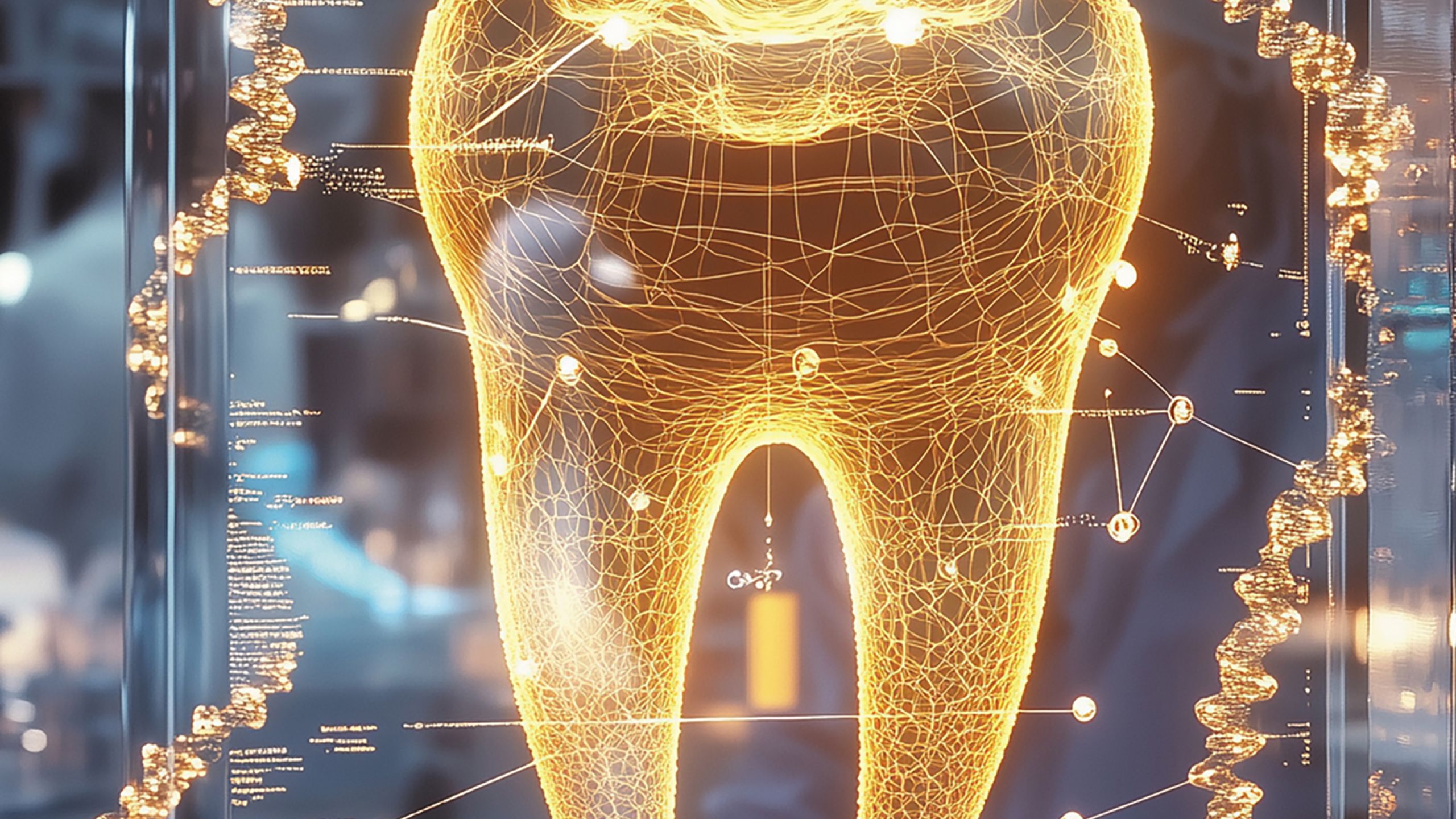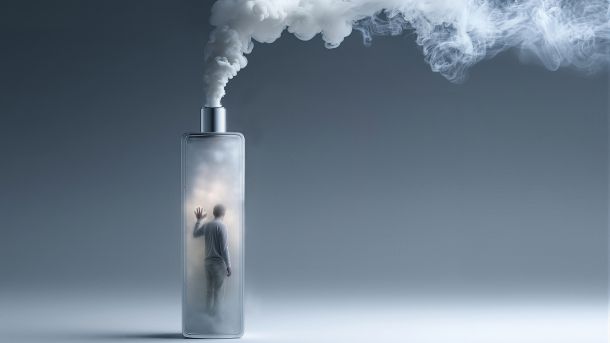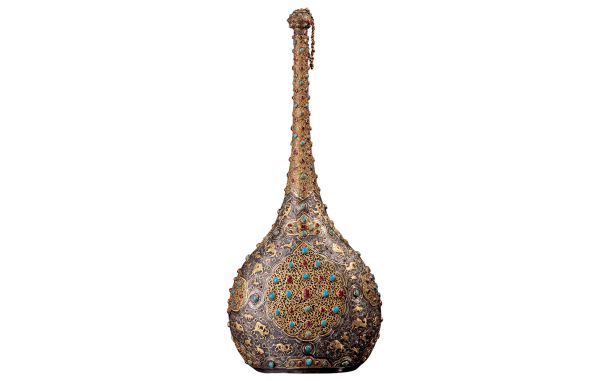Can Our Teeth Be Regenerated?

In This Article
-
Scientists are aiming to bring a drug that will stimulate the growth of new teeth to market by 2030. After the research team succeeded in growing new teeth in mice in 2018, they set their sights on enabling new tooth growth in healthy people.
-
There are “tooth buds” in the human embryo embedded in the palate, which are separate from the baby teeth and permanent teeth that will replace them at the age of six or seven. These buds lie dormant, much like a plant waiting to sprout, lying there for a while with a potential to become full teeth, before eventually disappearing.
Bediuzzaman Said Nursi, a twentieth-century scholar, emphasizes that God sent Prophets as guides and leaders to humanity for spiritual development, and that He gave some wonders to each of those Prophets for material progress. God assigned them like “foremen” and “masters” for people, and this is why, Bediuzzaman says, the Prophets should be strictly followed [1]. Many scientific developments today encourage us to contemplate Bediuzzaman’s words.
According to Bediuzzaman, the miracles of the Prophets indicate the limits of the future of knowledge, events such as the resurrection of the dead and healing the blind by Jesus (peace be upon him), the extraction of water when Moses (peace be upon him) struck the stone with his staff, the adhesion of organs back to where they were cut—returning to a healthy state through the blessed saliva of Muhammad (peace be upon him) when applied to a protruding eye or a severed arm—set encouraging and promising goals for the future of medicine and other sciences. Another example from the life of the Prophet was about a famous poet called Nabigha al-Ja’di (his real name was Abu Layla), who recited a poem of his in the presence of God’s Messenger. When he recited the couplet
Our honor and praise have reached the skies;
We want to ascend even higher!
the Messenger asked him, jokingly: “To where, O Abu Layla?” He replied: “To Paradise, O Messenger of God.” Afterwards, he recited another meaningful poem, and the Messenger of God prayed: “May God not deform your mouth.” It is told that Nabigha had all of his teeth in good shape when he reached the great age of 120 years. Whenever he lost a tooth, a new one would appear in its place [2].
Can we hope to keep our teeth as healthy as Nabigha’s? Current research in dentistry shows very promising results. In a research conducted by Japan's Kyoto and Fukui Universities on mice, scientists examined the limiting effects of a gene related to uterine sensitization. They discovered that during the deficiency of this gene when a special group of antibodies were activated, a large number of teeth were created from dormant cell groups in the palate [3]. After the promising results of the research on mice, a Japanese pharmaceutical company decided to support the study. The research has moved on to start testing on other animals.
Scientists conducting the research have announced that they were aiming to bring a drug that will stimulate the growth of new teeth to market by 2030. After the research team succeeded in growing new teeth in mice in 2018, they set their sights on enabling new tooth growth in healthy people, with funding from the pharmaceutical company Toregem Biopharma at Kyoto University.
In fact, there are “tooth buds” in the human embryo embedded in the palate, which are separate from the baby teeth and permanent teeth that will replace them at the age of six or seven. These buds lie dormant, much like a plant waiting to sprout, lying there for a while with a potential to become full teeth, before eventually disappearing.
The research team succeeded in producing an antibody that inhibits the effect of a protein produced by the gene that suppresses tooth growth and turning it into a drug. This antibody drug acts on dormant buds and stimulates their growth. After successful trials in mice, the researchers began testing the drug on ferrets, which have both baby and permanent teeth, similar to humans. The tests showed that new teeth grew in the ferrets.
When examining the condition of teeth in animals, three types of tooth development can be observed. Teeth are important for animals as they provide sustenance and serve as weapons, depending on their location. The shape of teeth, how they attach to the jaw, and their potential for different forms are crucial factors.
Turtles and birds have no teeth at all. Instead, they have sharp-edged, beak-shaped jaws covered with keratin that perform the function of teeth. Other auxiliary structures in their digestive systems also support the breakdown of food in the absence of teeth.
Sharks and other predatory fish have teeth that are constantly worn down, broken, and shed throughout their lives. However, they are never toothless. Sharks have teeth coated with a very hard layer called vitrodentin and are structured as placoid scales. These teeth, which are uniform in structure, are continuously renewed (a process known as polyphyodonty). The scales covering their bodies and the corners of their mouths grow over the palate and transform into teeth.
Most mammals develop two successive sets of teeth, a process known as diphyodonty. The first-generation teeth are called milk teeth. In various species, these teeth fall out at different times and are replaced by permanent teeth. However, some animals, such as guinea pigs, duck-billed platypuses, and toothed whales, do not change their teeth throughout their lives; they are considered monophyodont.
A small mutation in the genes responsible for promoting or stopping the development of teeth can sometimes, though rarely, cause the permanent tooth set to not develop in some children, a condition known as anodontia. Starting in 2025, the research team plans to inject a dose of their antibody to stimulate tooth development in children with such dental defects. If they can get successful results, this could increase the possibility of using this drug for adults who have lost their teeth to cavities. Katsu Takahashi, co-founder of the pharmaceutical company and head of dentistry and oral surgery at Kitano Hospital in Osaka, stated that missing teeth negatively affects the development of the jawbone, highlighting the importance of the issue. He hopes their drug will hopefully eliminate such problems, too [4].
If the research goes as planned, God willing, we may soon witness a new Prophetic miracle becoming real. It is important for believers not to confine faith to ritualistic practices of worship only, but also to expand it into exploring the book of universe through scientific research.
References
- Bediuzzaman Said Nursi, Words, Istanbul: Sahdamar Publications, 2010, pp. 269–270.
- As told by Nursi in The Letters, The Nineteenth Letter, NJ: The Light, p. 169. For the source of the hadith, see Ibn Hajar, al-Isaba, No. 8639; al-Bayhaqi, Dala’i al-Nubuwwa, 6:232; Ibn Kathir, al-Bidaya, 6:168; Ibn 'Abd al-Bar, al-Istiab 4/1516, 1743.
- A.M. Sugunami et al. “Anti–USAG-1 therapy for tooth regeneration through enhanced BMP signaling,” Science Advances, 7/7, 2021.
- “Japan pharma startup developing world-first drug to grow new teeth,” The Japan Times, Osaka, 24-9-2023.









